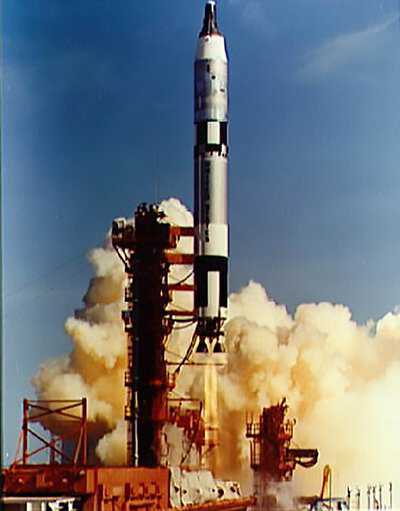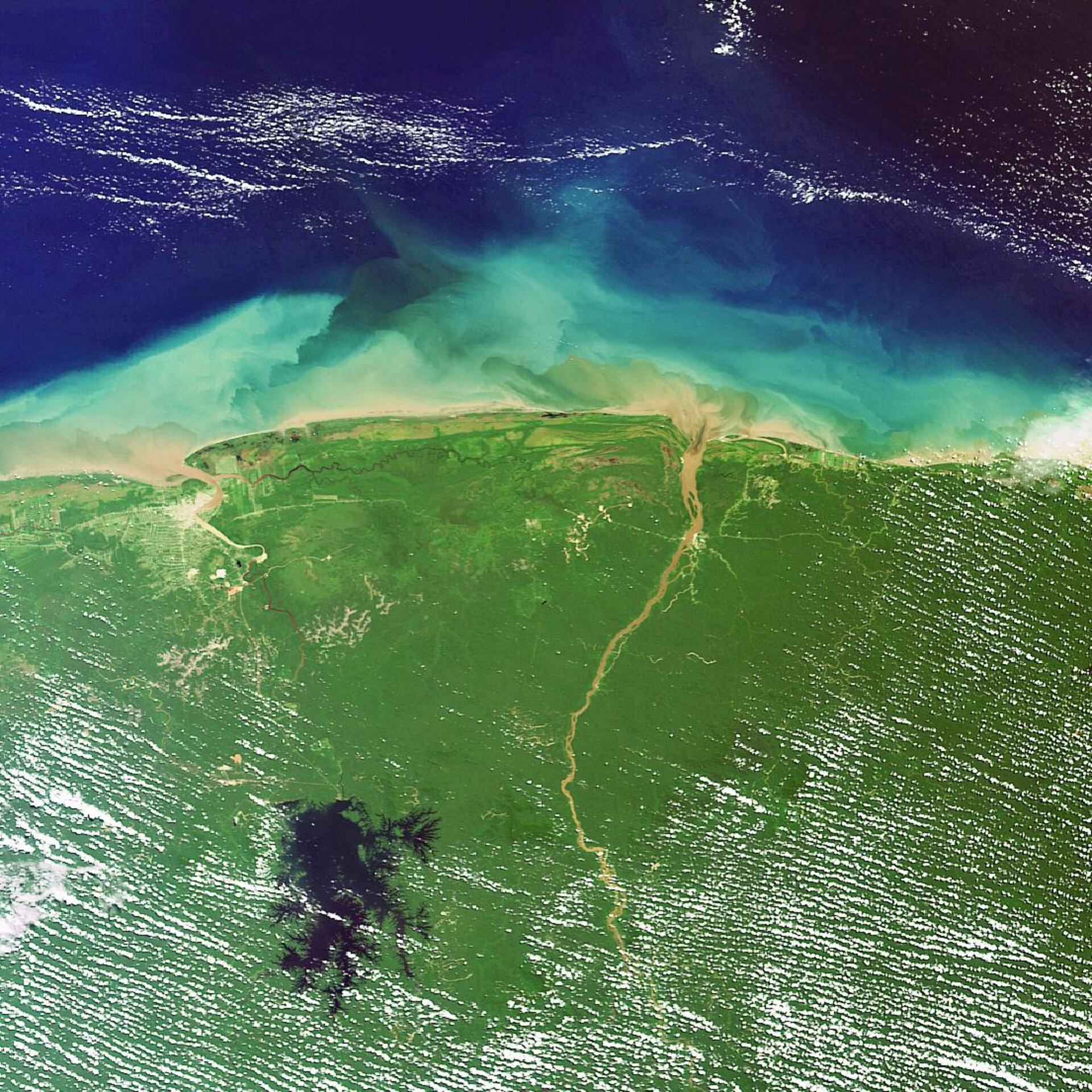Have you ever wondered about the contributions of Suriname to the space race? It’s not a topic that often comes up in casual conversations, but Suriname actually played a significant role in this exciting era of space exploration. In this article, we’ll delve into the details of Suriname’s contributions and how they left an indelible mark on the history of space exploration.
Suriname, a small country located on the northeastern coast of South America, may not immediately come to mind when thinking about the space race. However, its geographical location made it an ideal site for tracking satellites and spacecraft during this era. Suriname provided an essential service to space agencies around the world by hosting tracking stations that played a crucial role in communicating with and monitoring space missions.
One such tracking station was the Zanderij Space Tracking Station, which was established in the 1960s by NASA. This station was responsible for tracking and communicating with various missions, including the famous Apollo missions that put humans on the moon. The Zanderij Space Tracking Station played a pivotal role in ensuring the success of these missions through its accurate tracking capabilities and real-time communication with the astronauts. In fact, it was the first African-based NASA tracking station and represented an important step towards international collaboration in space exploration.
So, as you can see, Suriname’s contribution to the space race was more significant than one might initially assume. In the upcoming sections, we’ll explore in more detail the specific contributions of Suriname during this era of space exploration, shedding light on the important role this small country played in our quest to explore the cosmos.

Early History of Suriname
Suriname, located on the northeastern coast of South America, has a rich history that dates back to its colonization by the Dutch in the 17th century. The Dutch established their presence in Suriname with the intention of developing the region’s abundant natural resources, particularly in the agriculture sector.
Colonization by the Dutch
In 1667, Suriname officially became a Dutch colony through the Treaty of Breda. The Dutch West India Company took control of the territory and began cultivating the fertile lands for agricultural purposes. The Dutch plantation owners brought African slaves to work on the sugarcane plantations, which marked the beginning of a long and dark period of slavery in Suriname.
Introduction to the Plantation System
Under Dutch rule, the plantation system became the backbone of Suriname’s economy. Large-scale plantations were established, primarily focusing on the production of sugar. This plantation system heavily relied on the labor of enslaved Africans, who were subjected to inhumane living and working conditions.
Importance of Sugar Production
Sugar production played a crucial role in Suriname’s economy during the colonial period. The Dutch plantation owners exploited the fertile soil and favorable climate to cultivate sugarcane, making Suriname one of the leading sugar producers in the region. The profits generated from sugar exports fueled the economic growth and development of the colony.
Development of Suriname’s Education System
As time went on, Suriname began to develop its education system. The Dutch colonial government established schools to educate the children of European settlers, providing them with a basic education. However, access to education was limited for the enslaved Africans and Indigenous populations.
Establishment of Schools
The first schools in Suriname were established in the late 18th century and early 19th century. These schools primarily catered to the children of Dutch plantation owners and other European settlers. The education provided focused on basic reading, writing, and arithmetic skills.
Access to Higher Education
Access to higher education in Suriname was limited during the colonial era. It was predominantly available to individuals from wealthier backgrounds who could afford to travel to Europe for further studies. This lack of accessible higher education hindered the development of Suriname’s intellectual capabilities and contributed to societal disparities.
Focus on Science and Technology
In recent years, Suriname has placed a greater emphasis on science and technology education. The government has recognized the importance of equipping its citizens with the skills necessary to thrive in the modern world. Efforts have been made to promote STEM (Science, Technology, Engineering, and Mathematics) education in schools and universities, with a focus on developing a scientifically literate population.

Suriname’s Investment in Astronomy
Suriname has also made significant contributions to the field of astronomy, showcasing its dedication to scientific research and exploration beyond Earth’s boundaries.
Creation of Astronomical Institutions
In order to foster astronomical research within the country, Suriname has established several institutions dedicated to the study of space and celestial bodies. These institutions serve as centers of research and education for aspiring astronomers and scientists.
Promotion of Scientific Research
Suriname’s government has actively promoted scientific research in the field of astronomy. Funding and resources have been allocated to support studies related to space exploration, astrophysics, and cosmology. This investment has allowed Surinamese scientists to collaborate with their international counterparts and contribute valuable insights to the global scientific community.
Collaborations with International Space Organizations
Suriname has also forged collaborations with international space organizations. By partnering with esteemed institutions, Suriname has gained access to cutting-edge technologies, research, and expertise. These collaborations have not only enhanced Suriname’s capabilities in space exploration but have also opened doors for further scientific advancements.
Suriname’s Contribution to Space Exploration
Suriname’s commitment to space exploration extends beyond research and education. The country has actively participated in various space missions and has made significant contributions to the field.
Development of Space Technology
Suriname has made remarkable strides in the development of space technology. Scientists and engineers have been involved in the design and construction of advanced rocket systems, satellite communication equipment, and other space exploration technologies. These advancements showcase Suriname’s technical prowess and its ability to contribute to the global space industry.
Launch of Satellites
Suriname has successfully launched its own satellites into space. These satellites serve a variety of purposes, including remote sensing, communication, and weather forecasting. The launch of Surinamese satellites has not only demonstrated the country’s technological capabilities but has also played a crucial role in expanding global communication networks.
Participation in Space Missions
Suriname has actively participated in space missions organized by international space agencies. Surinamese scientists and astronauts have joined these missions, contributing their expertise to various aspects of space exploration. Through their participation, Surinamese individuals have gained invaluable experience and have cemented Suriname’s position in the global space race.

Achievements in Satellite Communication
Suriname’s investment in satellite communication has had a significant impact on global communication networks and the telecommunication industry.
Improving Global Communication Networks
The launch of Surinamese satellites has contributed to the improvement and expansion of global communication networks. These satellites enable reliable and efficient communication services, particularly in remote and underserved areas. Access to satellite communication has bridged the digital divide and facilitated connectivity on a global scale.
Advancements in Satellite Technology
Suriname’s focus on satellite communication has driven advancements in satellite technology. Surinamese scientists and engineers have made significant contributions to the design and development of satellites, enhancing their capabilities and functionality. These advancements have paved the way for improved data transmission, satellite imaging, and other innovative applications.
Impact on the Telecommunication Industry
Suriname’s achievements in satellite communication have had a profound impact on the telecommunication industry. The country’s technological advancements have attracted foreign investment and collaboration, fueling the growth of the industry. Suriname’s expertise in satellite communication positions it as a key player in the global telecommunication market.
Suriname’s Role in Weather Forecasting
The geographical location of Suriname, situated in the tropics, makes it prone to various weather patterns and natural disasters. Suriname has taken proactive measures to monitor and forecast weather conditions to ensure the safety and well-being of its citizens.
Weather Satellite Programs
Suriname has established weather satellite programs to monitor climate patterns and weather conditions. These programs utilize data collected by satellites to provide accurate weather forecasts and early warnings for potential natural disasters. Suriname’s investment in weather satellite programs has significantly improved its ability to predict and mitigate the impact of severe weather events.
Monitoring Climate Patterns
Suriname actively monitors climate patterns to better understand the region’s changing climate. By analyzing long-term climate data, Surinamese scientists can identify trends, assess the impact of climate change, and develop strategies to adapt to these changes. This research not only benefits Suriname but also contributes to global efforts to combat climate change.
Forecasting Natural Disasters
Suriname’s weather forecasting capabilities play a crucial role in predicting and managing natural disasters. Early warning systems and accurate weather forecasts allow the government and citizens to prepare for impending disasters, minimizing loss of life and property. Suriname’s commitment to weather forecasting has proven to be vital in ensuring the safety and resilience of its population.

Suriname’s Technological Innovations
Suriname has fostered an environment conducive to technological innovation, particularly in the field of space exploration.
Development of Advanced Rocket Systems
Surinamese scientists and engineers have made significant advancements in the development of advanced rocket systems. These rocket systems have enhanced Suriname’s ability to explore space and have laid the foundation for future space missions. Suriname’s expertise in rocket technology positions it as a valuable contributor to the global space industry.
Inventions in Space Exploration Equipment
Suriname has also produced notable inventions in space exploration equipment. Surinamese scientists and inventors have developed innovative technologies that have improved the efficiency, safety, and reliability of space exploration missions. These inventions have garnered international recognition and have further established Suriname’s reputation as a technological innovator.
Patents and Scientific Discoveries
Surinamese scientists and researchers have achieved groundbreaking scientific discoveries in various fields of space exploration. These discoveries have led to the filing of patents and intellectual property protection, ensuring that Suriname can commercially benefit from its scientific advancements. The innovative spirit within Suriname’s scientific community continues to drive the country’s contribution to space research.
Suriname’s Contribution to Space Research
Suriname’s dedication to space research has yielded numerous scientific accomplishments and breakthroughs.
Scientific Studies on Outer Space
Surinamese scientists have conducted extensive studies on outer space, gaining valuable insights into the universe beyond our planet. These studies have helped expand our understanding of celestial bodies, cosmic phenomena, and the origins of the universe. Suriname’s contributions to space research have been published in prestigious scientific journals, further solidifying its position within the global scientific community.
Discoveries in Astrobiology
Astrobiology, the study of life in the universe, has been a prominent research focus within Suriname. Surinamese scientists have made significant discoveries related to the possibility of extraterrestrial life and the conditions required for life to exist beyond Earth. These discoveries contribute to the ongoing search for life in the universe and have profound implications for our understanding of our place in the cosmos.
Exploration of Exoplanets
Suriname has actively participated in the search for exoplanets, planets outside our solar system. Surinamese astronomers have contributed to the discovery and characterization of exoplanets, expanding our knowledge of the diversity of planetary systems. Suriname’s involvement in exoplanet research positions it at the forefront of the search for potentially habitable worlds and the exploration of other celestial bodies.

Suriname’s Collaborations with International Space Agencies
Suriname’s collaboration with international space agencies has been instrumental in advancing its space exploration capabilities and broadening its horizons.
Partnership with NASA
Suriname enjoys a strategic partnership with NASA, the United States’ premier space agency. This partnership has facilitated knowledge exchange, joint research projects, and training opportunities for Surinamese scientists and astronauts. The collaboration with NASA has provided Suriname with access to state-of-the-art facilities, cutting-edge technologies, and a global network of experts.
Collaborations with ESA
Suriname has also formed collaborations with the European Space Agency (ESA). These collaborations encompass various aspects of space research and exploration, including satellite programs, data analysis, and technological innovation. Working alongside ESA scientists and engineers, Suriname has contributed to significant advancements in space science and technology.
Joint Missions with Roscosmos
Suriname has established cooperative missions with Roscosmos, the Russian space agency. These joint missions have fostered scientific and technological cooperation, enabling Suriname to participate in manned space missions and contribute to various space research endeavors. The collaboration with Roscosmos has strengthened Suriname’s international reputation and has expanded its opportunities for space exploration.
Promotion of STEM Education in Suriname
Suriname recognizes the importance of promoting STEM education to cultivate a scientifically inclined society and inspire future generations of astronomers and engineers.
Encouraging Scientific Curiosity
Suriname’s education system actively encourages scientific curiosity among students. Science fairs, workshops, and guest lectures by scientists are organized to expose students to the wonders of science and spark their interest in space exploration. By nurturing scientific curiosity, Suriname aims to inspire a new generation of astronomers and engineers.
Supporting STEM Programs
The government of Suriname provides support for STEM programs at various levels of education. Scholarships, grants, and funding opportunities are made available to students pursuing STEM fields, ensuring that financial limitations do not hinder their educational pursuits. Suriname’s commitment to supporting STEM programs reflects its determination to develop a skilled workforce capable of driving the country’s space industry forward.
Inspiring Future Astronomers and Engineers
Suriname celebrates the achievements of its scientists, engineers, and astronauts, using their success stories to inspire young Surinamese individuals. Role models are invited to speak at schools and universities, sharing their experiences and motivating students to pursue careers in space exploration and related fields. By empowering the youth and providing them with the necessary resources, Suriname aims to create a generation of aspiring astronomers and engineers.
Suriname’s Contribution to Space Medicine
Space medicine, the study of the effects of space travel on human health, has received attention from Surinamese scientists and researchers.
Research on Microgravity Effects
Surinamese scientists have conducted research to understand the effects of microgravity on the human body. This research has yielded valuable insights into the challenges astronauts face during extended space missions and has informed the development of countermeasures to mitigate these effects. Suriname’s contribution to space medicine helps ensure the well-being of astronauts and advances our understanding of human physiology.
Testing of Medical Devices
Suriname has also participated in the testing and evaluation of medical devices designed for use in space. Surinamese scientists and medical professionals work collaboratively with international partners to assess the functionality, safety, and effectiveness of these devices. The involvement of Surinamese experts in medical device testing contributes to the improvement of healthcare technologies for both space and Earth applications.
Training Astronauts
Suriname has played an active role in training astronauts for space missions. The country’s scientists and trainers work alongside international space agencies to provide comprehensive training programs, ensuring the physical and mental preparedness of astronauts. Suriname’s contribution to astronaut training underscores its commitment to advancing space exploration and fostering human spaceflight capabilities.
The Economic Impact of Suriname’s Space Industry
Suriname’s investment in the space industry has had significant economic implications for the country.
Job Creation
The development of Suriname’s space industry has created numerous job opportunities. From scientists and engineers to technicians and support staff, the space sector has contributed to employment growth in Suriname. This not only drives economic development but also fosters a skilled workforce capable of fueling further advancements in space exploration.
Boosting Technological Advancements
Suriname’s investment in the space industry has stimulated technological advancements in various sectors. The expertise gained from space-related research and development has spill-over effects, benefiting industries such as telecommunications, aerospace engineering, and medical technology. Suriname’s space industry serves as a catalyst for innovation and technological progress across the country.
Attracting Foreign Investment
Suriname’s commitment to the space industry has attracted foreign investment and collaboration. International companies and organizations are drawn to the country’s expertise and potential contributions to the global space market. Foreign investment infuses the economy with capital and expertise, supporting the growth and sustainability of Suriname’s space industry.
Suriname’s Space Exploration Roadmap
Suriname has outlined a comprehensive roadmap to guide its future space exploration endeavors.
Future Missions and Projects
Suriname has identified key missions and projects it intends to undertake. These include manned space missions, satellite launches, and collaborative research initiatives. By setting clear goals and objectives, Suriname aims to further its contributions to the global space race and expand its scientific and technological capabilities.
Investment in Space Infrastructure
Suriname recognizes the importance of investing in space infrastructure to support its space exploration ambitions. The development of launch facilities, research centers, and communication networks is crucial for the successful implementation of future missions. Suriname’s investment in space infrastructure reinforces its commitment to long-term space exploration and research.
Collaboration with Emerging Space Nations
Suriname is actively seeking collaborations with emerging space nations to foster mutual support and knowledge sharing. By cooperating with countries aspiring to advance their space capabilities, Suriname can contribute its expertise and gain valuable insights from these partnership opportunities. Collaboration with emerging space nations enhances Suriname’s influence in the global space race and strengthens its position as a spacefaring nation.
Conclusion
In summary, Suriname has made significant contributions to the space race through its dedication to scientific research, technological innovation, and collaboration with international space agencies. The country’s rich history and commitment to education have laid the foundation for its advancements in space exploration. Suriname’s investment in astronomy, space technology, and satellite communication has not only propelled its own space capabilities but has also made a lasting impact on global scientific and technological advancements. Through its contributions to space research, weather forecasting, technological innovation, and space medicine, Suriname has positioned itself as a key player in the global space race. Looking towards the future, continued investment in space exploration will undoubtedly yield further achievements for Suriname, ensuring its involvement in shaping the future of space exploration.
